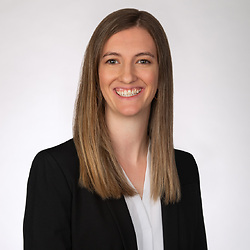No Coverage for Claims arising from Billing Practices under Professional Liability Policy
The United States District Court for the Middle District of Florida, applying Florida law, has held that a law firm was not entitled to coverage under a professional liability policy for claims involving its allegedly fraudulent billing practices because those claims did not involve “professional services” as defined by the policy and numerous exclusions otherwise precluded coverage. James River Ins. Co. v. Sheehe & Asscs., P.A., 2024 WL 821282 (M.D. Fla. Feb. 12, 2024).
The firm was sued for engaging in allegedly fraudulent billing practices from 2009 to 2020, including billing for time not actually worked, excessive billing for various repetitive tasks, billing for unproductive and administrative matters for which no time should have been charged, and, on 469 occasions in 2019, billing for more than 24 hours of work in a single day.
The firm’s professional liability insurer filed a declaratory judgment action and moved for summary judgment, arguing that the underlying action did not fall within its policy’s coverage because the dispute over the firm’s billing practices did not arise out of the firm’s “professional services,” which the policy defined to include services performed “for others” as a lawyer or in other specifically defined legal professional roles. The insurer also asserted that the policy’s Fee Dispute Exclusion and Gain of Profit Exclusion barred coverage for the underlying action, as it arose out of “disputes over fees for services” and “the gaining by the insured of any personal profit, gain or advantage to which the insured is not legally entitled.” Finally, the insurer contended that the policy’s Prior Knowledge Exclusion precluded coverage for the underlying action because it arose from professional services “rendered prior to the effective date of the policy [in March 2020] if any insured knew or could have reasonably foreseen that the ‘professional service’ could give rise to a ‘claim.’”
The court granted the insurer’s motion for summary judgment, holding that it did not owe a duty to defend the firm because allegedly fraudulent billing practices do not constitute “professional services.” The court concluded that billing practices were not “professional services” within the meaning of the policy because they are not services performed for a third party and because they do not require the skill, training, and regulation involved in substantive legal practice. The court further held that the relief sought by the firm’s client—i.e., restoration of ill-gotten gains—did not qualify as insurable “Damages” because public policy precluded the firm from procuring insurance against its own intentional misconduct.
The court also determined that the Fee Dispute and Gain of Profit Exclusions were unambiguous and separately applied to bar coverage for claims seeking damages arising out of the firm’s allegedly inflated billing practices.
Finally, the court held that the policy’s Prior Knowledge Exclusion barred coverage because the firm could have reasonably foreseen that a claim would arise from its fraudulent billing practices over more than a decade. In so holding, the court found that it was implausible that the firm was not subjectively aware that it had potentially breached its duties to the client, particularly given that it allegedly billed its client for more than 24 hours of work in a single day on over 400 occasions, and that any reasonable firm under similar circumstances would have foreseen that such actions could be the basis of a claim.


